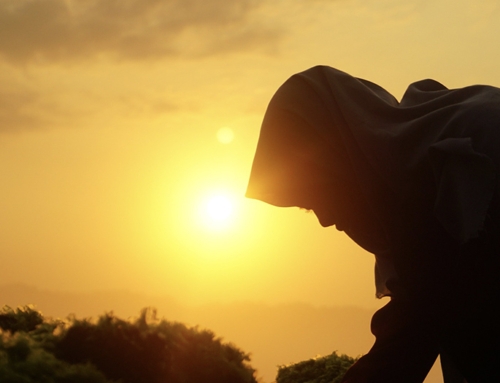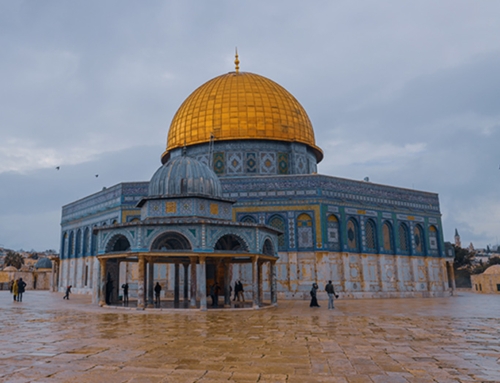In Islam, the concept of martyrdom (shahada in Arabic) refers to the act of sacrificing one’s life to testify and bear witness to one’s faith and a noble cause. On a deeper spiritual level, it represents the ultimate demonstration of one’s commitment and devotion to God and religious principles. The Arabic word shahada literally means “to visibly witness” or “to testify.” In the context of martyrdom, it refers to visibly and outwardly witnessing and testifying to one’s steadfast faith in God through the action of sacrificing one’s life for a noble cause or ethical purpose.
It is a common misperception that martyrdom means Muslims purposefully seek violence or death. This distorts the Quranic principles around the sanctity of human life and allowance of self-defense in restricted cases of aggression. Martyrdom does not mean wanton violence is religiously justified. Rather, it refers to the willingness to sacrifice one’s life for the sake of resisting injustice and oppression. Both violent and nonviolent scenarios apply, such as dying while protecting innocents or engaging in civil disobedience against authoritarian rule. The Quran praises those who speak unwelcome truths to oppressors—facing potential imprisonment or execution—analogous to contemporary human rights advocates. Martyrdom represents devotion to righteous causes expressed through courageous confrontation of injustice, not indiscriminate violence.
Martyrdom Across all Cultures
A clear sign of prejudice regarding Islamic martyrdom is the quickness by which Western media and politicians dismiss Muslims sacrificing their lives as brainwashed extremists – while any parallel self-sacrifice for a cause in a Western context earns praised as heroic conviction. For example, there is often a denial of the Israeli oppression and violence committed against Palestinians, followed by immediately condemning Palestinian martyrs as terrorists. Little consideration occurs whether radical reaction emerges only after facing systemic discrimination, military bombardment, and brutal occupation threatening their lives daily.
However, Martyrdom holds an esteemed role in Western society, as evidenced by the reverence for those who have sacrificed their lives for honorable causes throughout history. Figures like Martin Luther King Jr, Abraham Lincoln, and American soldiers in foreign wars are praised for their conviction and willingness to die for higher principles of freedom and justice. Streets and institutions are named after Western martyrs who stood up against oppression.
However, when Muslims sacrifice their lives against similar oppression and injustice, they rarely receive this same martyred recognition in the Western consciousness. Whether dying while resisting authoritarian rule, Israeli occupation, or Western military operations, Muslim martyrs tend to be dismissed as extremists rather than human beings responding to untenable conditions of systemic violence and discrimination against them. Their acts of courage and conviction against injustice go ignored, if not condemned.
This double standard requires reconsideration when appreciating the concept of martyrdom in Islam. While honorifics like “the conscience of America” or fighting for “The Free World” get bestowed onto Western protester martyrs, Muslim activists imprisoned and killed for representing the conscience of their communities receive accusations of being part of a death cult. What accounts for such prejudice? It speaks firstly to a failure of humanize Muslims – an inability to view Muslim martyrs as complex humans like those in the West.
Furthermore, Orientalist biases rooted in colonialism still influence Western perceptions today. Media depicts the Middle East as a static place filled with religious fanatics inclined toward violence, ignoring nuance or self-determined resistance against very real oppression across the Muslim world. Such distortions say more about Western propaganda still painting the region through outdated lenses. Appreciating the real meaning of martyrdom in Islam requires relinquishing residual ignorance.
What is Martyrdom in Islam?
The concept of martyrdom holds deep theological and spiritual significance in Islam, referring to the willing sacrifice of one’s life to testify and defend the Muslim faith against adversity. In its exalted status, martyrdom represents the ultimate form of devotion, conviction, and selflessness in upholding righteousness.
Historically, martyrdom emerged during the early Muslim community’s persecution for openly practicing Islam. Facing exile, torture, and execution for their beliefs, early converts sacrificed their wellbeing and lives to uplift the newfound faith. Those killed while steadfastly refusing to give up their faith became immortalized as martyrs. They are examples because they sacrificed their lives to fulfill a higher moral purpose. Their dedication and sacrifice in the face of hardship continue inspiring Muslims through the present day.
However, martyrdom in Islam is not limited to those who die in battle. It includes those who lose life prematurely by natural causes, accidents, or illnesses, and even mothers who lose their lives while giving birth. Others may speak unwelcome truths and endure imprisonment or death at the hands of unjust rulers. Additionally, those who sacrifice their lives on the battlefield protecting Muslim community against oppression or invasion also earn recognition as martyrs.
Martyrdom has great heavenly rewards promised to those who sacrifice themselves for righteousness. According to multiple verses in the Quran and sayings of the Prophet Muhammad, peace be upon him, martyrs occupy the highest ranks of paradise and remain eternally blessed by their devotion. They gain immediate entrance to heaven upon death rather than judgment, and have all past sins forgiven in light of their ultimate sacrifice. As a sign of their exalted status, martyrs gain the right of intercession – the capacity to appeal to Allah to offer salvation to their living or deceased relatives. The Quran describes the martyrs being alive: Do not think those killed for God’s cause are dead. No, they are alive with their Lord, well provided for (Quran 3:169). Such reward emphasizes that martyrdom represents the peak of conviction and moral purpose for Muslims – sacrificing ephemeral worldly pleasures for everlasting spiritual joy in the presence of the One eternal Creator they devoted that life to.
Conclusion
The concept of martyrdom in Islam transcends the narrow misperceptions that often cloud its understanding, particularly in Western societies. Martyrdom, or shahada, represents the pinnacle of commitment and devotion to God, a testament to the unwavering faith and moral purpose that underpins this sacred sacrifice. It is important to dispel the notion that martyrdom in Islam is synonymous with indiscriminate violence, a death cult, or extremism. Instead, it embodies the courageous confrontation of injustice, whether through protecting the innocent or engaging in nonviolent resistance against oppressive forces.
Western societies often laud their own historical figures who sacrificed their lives for noble causes, labeling them as heroes or martyrs. However, when Muslims make similar sacrifices against oppression and injustice, they are frequently dismissed as extremists rather than recognized for their acts of courage and conviction. Appreciating martyrdom in Islam requires that such prejudices be removed. Removing biases and humanizing Muslims and their struggles is essential for society to move beyond outdated lenses and truly appreciate the teachings of Islam, a religion that encompasses a quarter of humanity.
Got Questions?
We have Answers. Get in touch now.








